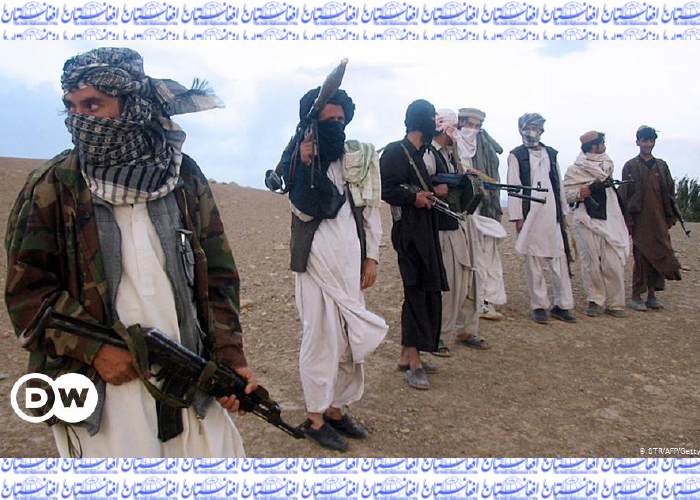The Taliban are purportedly involved in large-scale killings of Afghan civilians, seeking to impose their warped mind on people with the barrel of gun. The militant fighters shed the blood of men and women in Ghazni, Kandahar and Spin Boldak without an iota of mercy. They have not changed, not a single step.
The signs that the Taliban have not reformed are increasingly clear: An assassination campaign against government workers, civil society leaders and security forces continues on pace. There is little effort to proceed with peace talks with the Kabul administration, despite commitments made with Washington. And in areas the insurgents have seized, women are being forced out of public-facing roles, and girls out of schools, undoing many of the gains from the last couple of decades on Western presence.
In place they now rule, the Taliban have imposed their old radical ideology, such as forbidding women from working or even going outside their homes unaccompanied, according to residents in recently captured districts. It is said that with the start of schools after a long holiday because of the COVID-19 pandemic, the Taliban did not allow girls in Ghazni province to go to school. In areas under the Taliban’s control, music is banned and men are told to stop shaving their beards and wearing pants.
Days after they captured a remote district in northern part of the country, the Taliban issued their first orders in the form of a letter to the local imam. “It said women can’t go to the bazaar without a male companion, and men should not shaver their beards,” said a resident of Kalafgan district. The Taliban also banned smoking, warning that anybody violating the rules, “will be seriously dealt with”.
They are again introducing the harsh interpretation of Islamic Sharia that earned them notoriety until being overthrown by the US-led invasion that followed the September 11 attacks.
A video clip released show head of the Taliban’s negotiating team Abbas Stanikzai talking to the Afghan republic representatives, saying that the Taliban would not accept “foreign democracy”, and the decades of achievements did not carry significance. He said that the achievements in the last couple of decades were no more than killings and bloodshed. He accosts the audience why they did not persist on peace in 2001 or 2011, which indicates that the Taliban are not seeking peace or stability. Despite sustain heavy casualties, the Taliban continue their acts of violence and bloodshed. New York Time quoted Mullah Basir Akhund, a former commander and member of the Taliban since 1994, as saying that cemeteries along the Pakistani border, where Taliban fighters have long been buried, are filling up faster than in years past. According to him, Pakistani hospitals, part of the country’s unwavering line of support for the insurgents, are running out of bed space. During a recent visit to a hospital in Quetta, Akhund said he saw more than 100 people, most of them Taliban fighters, waiting to be treated.
The Taliban should not ignore the gains made in the last two decades. There are now 3.5 million Afghan girls in school (although more than two million still do not go). Women are working in all sorts of fields: law enforcement, cinema, robotics, etc. The health care system has been transformed, and life expectancy for Afghan women has increased by almost a decade. Afghanistan has flourishing media. Even the presence of cell phones indicates a society connected with the rest of the world. Young Afghans will not easily give up such hard-won rights. The fear is that these gains will now be threatened. The Taliban have tried to undo the decades-long achievements, ban girls from going to school, and prevent women from going to work. They have bombed schools and hospitals, and beheaded government employees. Afghans, who fear the Taliban’s atrocious acts, are filled with rage and hatred against the Taliban in the wake of their recent killings of civilians as well as their harsh ideology being imposed in the Taliban-dominated areas. The role of the UN and regional and global allies as spectators in such a critical time is questionable.
The Taliban are not pressured to stop killing civilians or no more impose their hardline interpretation of Sharia Law on the public under their control. The Taliban first ban media in areas under their control to prevent the spread of their harsh practices and human rights abuses. Journalists do not dare enter areas under the Taliban’s control.
The international community and global parties have to pressure the Taliban not to capitalize on the US troop withdrawal and negotiate meaningfully with the Afghan government. They have to stop violating the rule of war.
Home » Opinion » Why International Community Watching Taliban’s Violence?
Why International Community Watching Taliban’s Violence?
| Hujjatullah Zia

